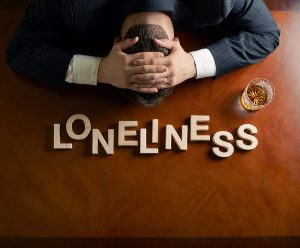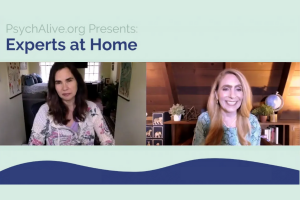Is Happiness Really Normal?
 Most people would say they want to be happy. They want their children to be happy. They want their spouse to be happy. There is almost a reaction of fear if we ourselves, or someone close to us, is feeling “down.” The world-view prevalent in today’s culture seems to be that happiness is the “normal” that people must strive for, leaving many feeling a bit of a failure for not reaching, or sustaining this emotional realm. Eric Wilson challenges this assumption in his book Against Happiness. He makes a clear distinction between the serious condition of clinical depression which he stresses must be treated, and what he refers to as “sweet sorrow,” the understandable, inevitable, “normal,” response to the existential questions that surround us. He wonders what drives our culture to avoid sadness, as this emotion can bring us to a deeper experience of our world and those in it.
Most people would say they want to be happy. They want their children to be happy. They want their spouse to be happy. There is almost a reaction of fear if we ourselves, or someone close to us, is feeling “down.” The world-view prevalent in today’s culture seems to be that happiness is the “normal” that people must strive for, leaving many feeling a bit of a failure for not reaching, or sustaining this emotional realm. Eric Wilson challenges this assumption in his book Against Happiness. He makes a clear distinction between the serious condition of clinical depression which he stresses must be treated, and what he refers to as “sweet sorrow,” the understandable, inevitable, “normal,” response to the existential questions that surround us. He wonders what drives our culture to avoid sadness, as this emotion can bring us to a deeper experience of our world and those in it.
The answer is simple: fear. Most hide behind the smile, because they are afraid of facing the world’s complexity, its vagueness, its terrible beauties. If they stay safely ensconced behind their painted grins, then they won’t have to encounter the insecurities attendant upon dwelling in possibility, those anxious moments when one doesn’t know this from that, when one could suddenly become almost anything at all. Even though this anxiety, usually over death, is in the end exhilarating, a call to be creative, it is in the beginning rather horrifying, a feeling of hovering in an unpredictable abyss. Most immediately flee from this situation. They try to lose themselves in the laughing masses, hoping the anxiety will never again visit them. They don inauthenticity as a mask, a disguise protecting them from the abyss.
Existential fears can cause people to lead lives that are less personally fulfilling. They may avoid meaningful experiences as a defense against the inevitable pain of the human condition. Dr. Robert Firestone describes this condition in his blog “Life-Affirming Death Awareness:”
Most people spend their lifetime without a great deal of self-awareness, living lives of emptiness and drudgery based on their early programming. They rarely reflect on their circumstances but rather are addicted to a lifestyle of form and routine. Few develop a life plan or project that gives value, substance or meaning to their daily lives.
In order to deal with the painful realities of life, people may seek to cut off from their feelings. They, often unconsciously, form defenses that they sense will protect them from their fears. These defenses can include not allowing people to get too close to you, seeking isolation or not pursuing your most meaningful goals. People can avoid pain by focusing on more superficial interests or engaging in addictive behaviors, zoning out watching TV or using drugs or alcohol to “take the edge off.” These activities may momentarily numb people from their pain, but it also cuts them off from experiencing the full joys life has to offer. Feeling their feelings, however frightening it may seem, actually allows people a greater capacity for happiness. As Dr. Firestone writes:
An acceptance of death and dying as a reality and an awareness of the typical defenses that people develop to counter the dread can be life-affirming rather than leading to cynicism or depression. Challenging psychological defenses formed in childhood and reinforced by death anxiety can lead to more personal satisfaction in living and expand the opportunity for self-realization. Facing one’s mortality and feeling the appropriate emotions of sadness, anger, and fear can give greater meaning to life and make it all the more precious. This awareness also places one’s experience in perspective and helps to avoid trivializing one’s existence.
Sadness can actually serve as a gateway to happiness. People’s willingness to be sad allows them to experience life more fully. They are able to live with a sense of poignancy and meaning. They have greater access to their loving feelings. They have more clarity when it comes to pursuing their goals and living by their values. Avoiding this pain has harmful effects, while facing it can make our experiences much richer and more rewarding.
To explore further the idea of challenging the fear and stigma associated with feeling “less than happy,” click here.









Leave a Reply